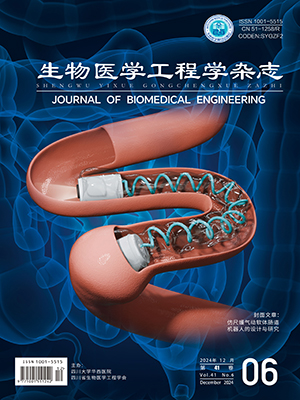| 1. |
Jessen F, Amariglio R E, Buckley R F, et al. The characterisation of subjective cognitive decline. Lancet Neurol, 2020, 19(3): 271-278.
|
| 2. |
Ismail Z, Smith E E, Geda Y, et al. Neuropsychiatric symptoms as early manifestations of emergent dementia: provisional diagnostic criteria for mild behavioral impairment. Alzheimer's & Dementia, 2016, 12(2): 195-202.
|
| 3. |
Atri A. The Alzheimer’s disease clinical spectrum: diagnosis and management. Medical Clinics, 2019, 103(2): 263-293.
|
| 4. |
Creese B, Brooker H, Ismail Z, et al. Mild behavioral impairment as a marker of cognitive decline in cognitively normal older adults. The American Journal of Geriatric Psychiatry, 2019, 27(8): 823-834.
|
| 5. |
Saleh M, Reimer J, Penn R, et al. Fast and slow oscillations in human primary motor cortex predict oncoming behaviorally relevant cues. Neuron, 2010, 65(4): 461-471.
|
| 6. |
Lakatos P, Karmos G, Mehta A D, et al. Entrainment of neuronal oscillations as a mechanism of attentional selection. Science, 2008, 320(5872): 110-113.
|
| 7. |
Holz E M, Glennon M, Prendergast K, et al. Theta–gamma phase synchronization during memory matching in visual working memory. Neuroimage, 2010, 52(1): 326-335.
|
| 8. |
赵杰, 欧阳周玲, 丁雪桐, 等. 认知障碍的进展对脑功能连接梯度的影响. 神经损伤与功能重建, 2022, 17(1): 23-27, 46.
|
| 9. |
Kosko B. Fuzzy entropy and conditioning. Information Sciences, 1986, 40(2): 165-174.
|
| 10. |
Huang L Y, Sun Q X, Cheng J Z, et al. Prediction of epileptic seizures using bispectrum analysis of electroencephalograms and artificial neural network//Proceedings of the 25th Annual International Conference of the IEEE Engineering in Medicine and Biology Society. Mexico: IEEE, 2003, 3: 2947-2949.
|
| 11. |
Schack B, Vath N, Petsche H, et al. Phase-coupling of theta–gamma EEG rhythms during short-term memory processing. International Journal of Psychophysiology, 2002, 44(2): 143-163.
|
| 12. |
Palva J M, Palva S, Kaila K. Phase synchrony among neuronal oscillations in the human cortex. Journal of Neuroscience, 2005, 25(15): 3962-3972.
|
| 13. |
Yanagisawa T, Yamashita O, Hirata M, et al. Regulation of motor representation by phase–amplitude coupling in the sensorimotor cortex. Journal of Neuroscience, 2012, 32(44): 15467-15475.
|
| 14. |
Ahnaou A, Moechars D, Raeymaekers L, et al. Emergence of early alterations in network oscillations and functional connectivity in a tau seeding mouse model of Alzheimer’s disease pathology. Scientific Reports, 2017, 7(1): 14189.
|
| 15. |
闫彦, 肖莎莎, 刘梦, 等. 轻度认知障碍老年人脑电的非线性相互依赖脑网络分析. 中国生物医学工程学报, 2021, 40(6): 662-673.
|
| 16. |
Liu C J, Huang C F, Chou C Y, et al. Age- and disease-related features of task-related brain oscillations by using mutual information. Brain and Behavior, 2012, 2(6): 754-762.
|
| 17. |
Batzaya T, Heejoung H. VGG-C Transform model with batch normalization to predict Alzheimer’s disease through MRI dataset. Electronics, 2022, 11(16): 2601.
|
| 18. |
Lashgari E, Liang D, Maoz U. Data augmentation for deep-learning-based electroencephalography. Journal of Neuroscience Methods, 2020, 346: 108885.
|
| 19. |
葛轶洲, 许翔, 杨锁荣, 等. 序列数据的数据增强方法综述. 计算机科学与探索, 2021, 15(7): 1207-1219.
|
| 20. |
吴越, 赵进法, 杨宏宇, 等. 老年人快速认知筛查量表在社区人群应用的效度研究. 中华行为医学与脑科学杂志, 2019, 28(9): 854-859.
|
| 21. |
Delorme A, Makeig S. EEGLAB: an open-source toolbox for analysis of single-trial EEG dynamics including independent component analysis. Journal of Neuroscience Methods, 2004, 134(1): 9-21.
|
| 22. |
黄伟键. 基于数据增强和深度学习的脑电信号分类研究. 广州: 广州大学, 2021.
|
| 23. |
Mormann F, Fell J, Axmacher N, et al. Phase/amplitude reset and theta–gamma interaction in the human medial temporal lobe during a continuous word recognition memory task. Hippocampus, 2005, 15(7): 890-900.
|
| 24. |
刘建伟, 赵会丹, 罗雄麟, 等. 深度学习批归一化及其相关算法研究进展. 自动化学报, 2020, 46(6): 1090-1120.
|
| 25. |
Srivastava N, Hinton G, Krizhevsky A, et al. Dropout: a simple way to prevent neural networks from overfitting. The Journal of Machine Learning Research, 2014, 15(1): 1929-1958.
|
| 26. |
LeCun Y, Bottou L, Bengio Y, et al. Gradient-based learning applied to document recognition. Proceedings of the IEEE, 1998, 86(11): 2278-2324.
|
| 27. |
Kutyniok G. Discussion of: “Nonparametric regression using deep neural networks with ReLU activation function”. The Annals of Statistics, 2020, 48(4): 1902-1905.
|
| 28. |
Li X, Yang C, Xie P, et al. The diagnosis of amnestic mild cognitive impairment by combining the characteristics of brain functional network and support vector machine classifier. Journal of Neuroscience Methods, 2021, 363: 109334.
|
| 29. |
刘佳星. 基于网格搜索超参数优化的支持向量回归. 科学技术创新, 2022(13): 71-74.
|
| 30. |
Richman J S, Moorman R J. Physiological time-series analysis using approximate entropy and sample entropy. American Journal of Physiology-Heart and Circulatory Physiology, 2000, 278(6): H2039-H2049.
|
| 31. |
Nakhnikian A, Ito S, Dwiel L L, et al. A novel cross-frequency coupling detection method using the generalized Morse wavelets. Journal of Neuroscience Methods, 2016, 269: 61-73.
|
| 32. |
Mazzoni A, Whittingstall K, Brunel N, et al. Understanding the relationships between spike rate and delta/gamma frequency bands of LFPs and EEGs using a local cortical network model. Neuroimage, 2010, 52(3): 956-972.
|
| 33. |
Canolty R T, Knight R T. The functional role of cross-frequency coupling. Trends in Cognitive Sciences, 2010, 14(11): 506-515.
|
| 34. |
Kendrick K M, Zhan Y, Fischer H, et al. Learning alters theta amplitude, theta-gamma coupling and neuronal synchronization in inferotemporal cortex. BMC Neuroscience, 2011, 12: 55.
|
| 35. |
Friese U, Köster M, Hassler U, et al. Successful memory encoding is associated with increased cross-frequency coupling between frontal theta and posterior gamma oscillations in human scalp-recorded EEG. Neuroimage, 2013, 66: 642-647.
|




